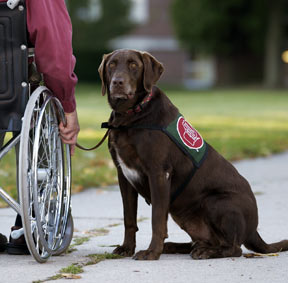Frequency of Discrimination Complaints Based Upon Disability
September 22nd, 2017 | By: Matthew I. Paletz, Esq.
Matthew I. Paletz was published in this month’s e-News for the Real Property Law Section for the State Bar of Michigan. In the article, he discusses the proliferation of Fair Housing claims based on disability.
According to the National Fair Housing Alliance, approximately 55% of fair housing complaints are based on disability. NFHA Fair Housing Trends Report, April 2017. Under the Fair Housing Act (FHA) (42 USC 3601 et seq.) and the Americans with Disabilities Act (ADA) (42 USC 12101 et seq.), a disability is defined as “a physical or mental impairment that substantially limits one or more major life activities.” The FHA governs the conduct of residential property owners, while the ADA typically does not apply to housing except for public areas such as the leasing office or common areas.
One of the most frequent complaints based on disability relates to service or assistance animals. The ADA requires that in order for its protections to apply to its owner, a service animal such as a leader dog for the blind must be individually trained for the particular disability it will service. However, for housing purposes, a landlord must make a reasonable accommodation for service animals as well as emotional support animals, which are companion animals that benefit a disabled individual.
Business owners should also be aware that ADA compliance obligations may extend to corporate websites. In Juan Carlos Gil v. Winn-Dixie Stores, Inc., (S.D. Fl.,No. 16-23020, June 13, 2017), the visually impaired plaintiff alleged that the store’s website did not accommodate his disability. The court agreed with the plaintiff that websites are an extension of a business and ordered the company to comply with the ADA to make the entire website accessible. The defendant is appealing the order.
The Bottom Line: Property owners should be mindful of the volume of disability claims being initiated. Attorneys who represent property owners should encourage their clients to effectively train their personnel and to implement policies to mitigate potential liability.
The information contained in this article is only meant to be a basic overview and should not be construed as legal advice. Readers should not act upon this information without the advice of an attorney. The contents are intended for general information purposes only and may not be quoted or referred to in any other publication or otherwise be disseminated without the prior written consent of Paletz Law.
Speak with a Paletz Landlord
Advocate Today
 - advice for small to mid-size businesses to help them better their day-to-day operations
- advice for small to mid-size businesses to help them better their day-to-day operations 